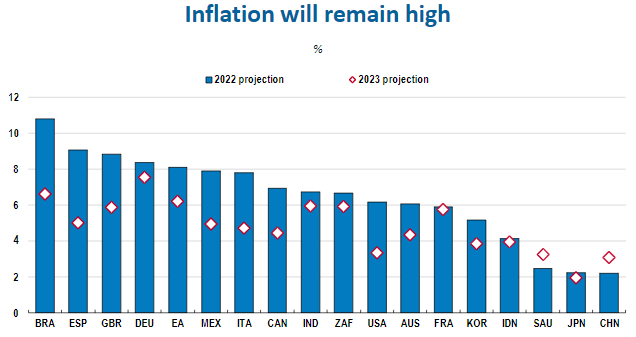Private consumption growth slowed in OECD countries in general terms, with wage growth below the inflation trend.
The global economy has lost momentum this year. After recovering strongly from the Covid-19 pandemic, it looked set to return to a more normal economic situation before «Russia‘s unprovoked, unjustifiable and illegal war of aggression against Ukraine,» the OECD noted in a report on the world economic outlook.
Already, the effects of the war and the continuing repercussions of Covid-19 outbreaks in some parts of the world have dented growth and put additional upward pressure on prices, especially for energy and food.

Global gross domestic product (GDP) stagnated in the second quarter of 2022 and output declined in the Group of 20 (G20) economies.
Although growth in the third quarter is likely to have been positive, helped by a rebound in China, several indicators have worsened and the OECD’s global growth outlook has darkened.
Private consumption
Survey-based indicators are particularly weak, reports the OECD.
While business survey indicators point to stagnant output in many economies, consumer confidence has fallen to surprisingly low levels in most advanced economies.
Also, the OECD Composite Leading Indicator for OECD economies is now at the lowest level since the global financial crisis, barring a brief dip at the start of the pandemic in the spring of 2020.
With nominal wage growth failing to keep pace with inflation, real household disposable incomes have fallen in many OECD economies, holding back private consumption growth.
Meanwhile, the OECD projects overall headline price growth to fall from 8.2% in 2022 to 6.5% in 2023 in the G20 economies.
At the same time, this indicator would decline from 6.2% in advanced G20 economies in 2022 to 4% in 2023.
![]()

